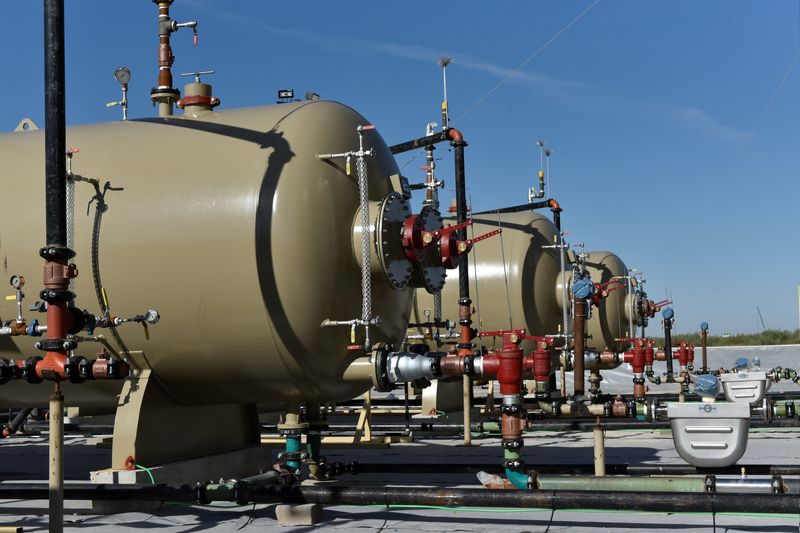Bitcoin price today: rises above $111k amid easing trade jitters; US CPI on tap
Investing.com-- Oil prices surged higher Thursday after U.S. President Donald Trump announced sanctions on Russia’s largest oil companies, a move that could dissuade China and India from purchasing Russian crude.
At 09:45 ET (13:45 GMT), Brent oil futures for December jumped 4.9% to $65.66 a barrel and West Texas Intermediate crude futures soared 5.1% to $61.50 a barrel.
China halts Russian crude purchases - report
Trump’s Treasury Department on Wednesday unveiled sanctions against Lukoil and Rosneft, Russia’s two biggest oil companies, and called for an immediate ceasefire with Ukraine.
Treasury Secretary Scott Bessent said the companies funded “the Kremlin’s war machine,” and that the Treasury was prepared to take more action against Moscow.
The sanctions now stand to block a chunk of global oil supplies, and helped ease concerns over a looming supply glut.
Wednesday’s announcement also marks a pivot in Trump’s stance on Russia, who had so far not imposed any direct sanctions on the country in his second term.
"The key question is whether these sanctions are enough to deter buyers of Russian oil, specifically China and India," said analysts at ING, in a note.
"Sanctions on companies producing more than 5m b/d of oil are significant. However, if we look back to January, the Biden administration imposed similar sanctions on Russian oil producers, Gazprom Neft and Surgutneftegas, along with sanctions on a large share of Russia’s shadow fleet of tankers. These sanctions had little impact on Russian oil exports."
However, these sanctions appear to be having an immediate impact, at least for now.
Chinese state-owned oil giants have halted purchases of seaborne Russian crude following the U.S. move, according to a report by Reuters earlier Thursday.
Reuters said sources told them that PetroChina, Sinopec, CNOOC and Zhenhua Oil have suspended transactions at least in the short term out of concern over potential sanctions exposure.
The move is said to follow a similar trend in India, where refiners are also expected to sharply reduce imports of Russian oil to comply with the U.S. measures imposed over the Kremlin’s invasion of Ukraine.
The report cited trade data showing that China imports about 1.4 million barrels of Russian oil per day by sea, mostly through independent refiners known as “teapots.”
Purchases by state firms have reportedly been smaller, with Vortexa Analytics estimating under 250,000 barrels per day in the first nine months of 2025, while consultancy Energy Aspects put the figure closer to 500,000 barrels per day.
Separately, the European Union also imposed fresh sanctions on Russia, targeting Moscow’s shadow fleet of tankers while also banning all Russian liquefied natural gas imports.
U.S. inventory draw supports crude
Oil prices have recovered from the five-month lows hit earlier this week, also helped by data showed U.S. inventories unexpectedly shrank in the week to October 17.
Inventories fell by 0.96 million barrels, against expectations for a 2.2 million barrel build. Draws in gasoline and distillate stockpiles also helped spur some optimism over demand in the world’s largest fuel consumer.
Markets are now seeking more cues on the U.S. economy from key consumer inflation data for September, which is due on Friday.
Concerns over the U.S. economy and fuel demand were a key weight on oil prices in recent weeks.
Ambar Warrick contributed to this article
